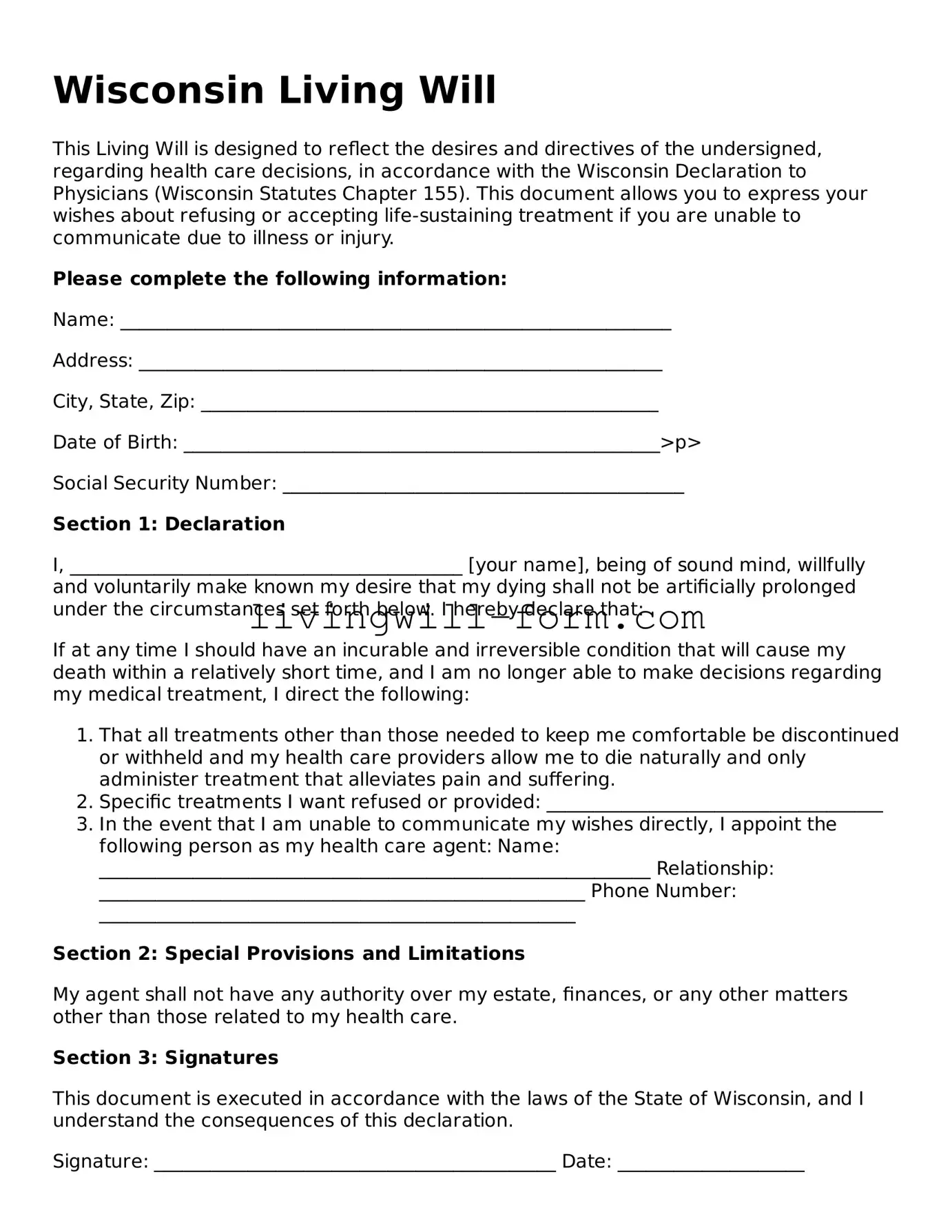Wisconsin Living Will
This Living Will is designed to reflect the desires and directives of the undersigned, regarding health care decisions, in accordance with the Wisconsin Declaration to Physicians (Wisconsin Statutes Chapter 155). This document allows you to express your wishes about refusing or accepting life-sustaining treatment if you are unable to communicate due to illness or injury.
Please complete the following information:
Name: ___________________________________________________________
Address: ________________________________________________________
City, State, Zip: _________________________________________________
Date of Birth: ___________________________________________________>p>
Social Security Number: ___________________________________________
Section 1: Declaration
I, __________________________________________ [your name], being of sound mind, willfully and voluntarily make known my desire that my dying shall not be artificially prolonged under the circumstances set forth below. I hereby declare that:
If at any time I should have an incurable and irreversible condition that will cause my death within a relatively short time, and I am no longer able to make decisions regarding my medical treatment, I direct the following:
- That all treatments other than those needed to keep me comfortable be discontinued or withheld and my health care providers allow me to die naturally and only administer treatment that alleviates pain and suffering.
- Specific treatments I want refused or provided: ____________________________________
- In the event that I am unable to communicate my wishes directly, I appoint the following person as my health care agent:
Name: ___________________________________________________________
Relationship: ____________________________________________________
Phone Number: ___________________________________________________
Section 2: Special Provisions and Limitations
My agent shall not have any authority over my estate, finances, or any other matters other than those related to my health care.
Section 3: Signatures
This document is executed in accordance with the laws of the State of Wisconsin, and I understand the consequences of this declaration.
Signature: ___________________________________________ Date: ____________________
Witness 1: ___________________________________________ Date: ____________________
Address: ________________________________________________________________________
Witness 2: ___________________________________________ Date: ____________________
Address: ________________________________________________________________________
Notice: This living will should be kept in a place where it is easily accessible in the event it is needed. Copies of this document should be given to your health care agent, family members, and your primary physician.

